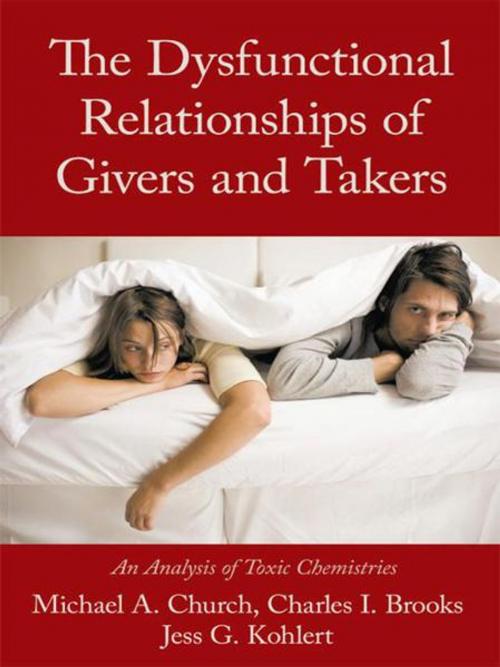The Dysfunctional Relationships of Givers and Takers
An Analysis of Toxic Chemistries
Nonfiction, Reference & Language, Education & Teaching, Teaching, Teaching Methods, Health & Well Being, Self Help, Self Improvement| Author: | Michael A. Church, Jess G. Kohlert, Charles I. Brooks, | ISBN: | 9781463423995 |
| Publisher: | AuthorHouse | Publication: | August 8, 2011 |
| Imprint: | AuthorHouse | Language: | English |
| Author: | Michael A. Church, Jess G. Kohlert, Charles I. Brooks, |
| ISBN: | 9781463423995 |
| Publisher: | AuthorHouse |
| Publication: | August 8, 2011 |
| Imprint: | AuthorHouse |
| Language: | English |
In your relationships does it matter if you and your partner are a giver or a taker? Are there different types of givers and takers? Whats the secret to a good marriage? How can you save a rocky marriage? What is the best way to get counseling and what should you expect from counseling? What if a serious psychological disorder is involved in your relationship? The authors, professional psychologists, answer these and many more questions by examining clinical case studies from their counseling practice. The authors present an original model that divides both givers and takers into four different types, and they use the model to analyze their case studies and illustrate why relationships can succeed or fail. They also discuss various personality disorders (such as, obsessive-compulsive, narcissistic, dependent, paranoid, borderline, and antisocial), and how such conditions can complicate treatment of dysfunctional relationships. This book is an essential first step for anyone concerned about a relationship, or who just wants to learn more about the dynamics of relationships from the perspective of givers and takers.
In your relationships does it matter if you and your partner are a giver or a taker? Are there different types of givers and takers? Whats the secret to a good marriage? How can you save a rocky marriage? What is the best way to get counseling and what should you expect from counseling? What if a serious psychological disorder is involved in your relationship? The authors, professional psychologists, answer these and many more questions by examining clinical case studies from their counseling practice. The authors present an original model that divides both givers and takers into four different types, and they use the model to analyze their case studies and illustrate why relationships can succeed or fail. They also discuss various personality disorders (such as, obsessive-compulsive, narcissistic, dependent, paranoid, borderline, and antisocial), and how such conditions can complicate treatment of dysfunctional relationships. This book is an essential first step for anyone concerned about a relationship, or who just wants to learn more about the dynamics of relationships from the perspective of givers and takers.















